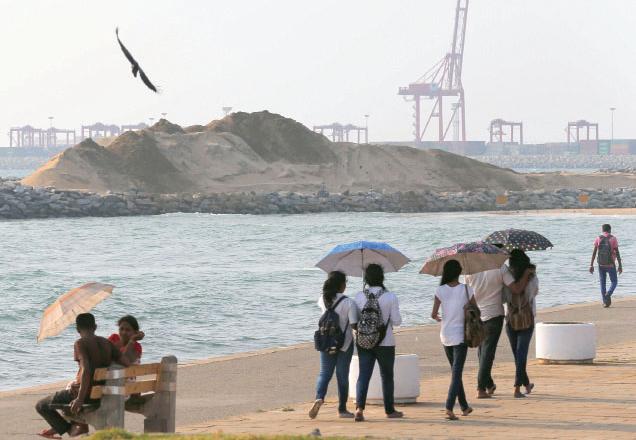You are here
Sri Lanka recovering but poverty enduring — World Bank
By AFP - Apr 03,2024 - Last updated at Apr 03,2024
COLOMBO — Crisis-hit Sri Lanka will return to growth this year, the World Bank said on Tuesday, but around a quarter of the country's citizens will remain living in poverty.
The Indian Ocean island nation was hammered by its worst-ever economic crisis in 2022, when it ran out of foreign exchange and protests over the resulting shortages of food, fuel and pharmaceuticals forced its president to resign. Sri Lanka's economy shrank by 7.3 per cent that year, followed by another contraction of 2.3 per cent in 2023. But in a new report the World Bank said Sri Lanka's GDP was expected to stabilise this year, projecting growth of 2.2 per cent.
Even so, the bank warned that the recovery would make little difference for many of those who were still suffering from the crisis.
More than 5.5 million Sri Lankans — or a quarter of the country's population of the 22 million — were living below the poverty line of $3.65 a day, the World Bank said.
That compared to 11.3 per cent in 2019, before the crisis hit.
"The modest economic recovery will be insufficient to reverse welfare losses experienced during the crisis," the bank said, estimated poverty would stay above 22 per cent until 2026.
Utility price rises and government revenue measures meant household budgets would "remain stressed", it added.
The bank warned that Sri Lanka must carry out a "deep debt restructuring" and restore its access to international financial markets, blocked since it defaulted on its $46 billion foreign debt in April 2022.
Colombo secured a $2.9 billion IMF bailout in early 2023 after sharply raising taxes and cutting energy subsidies.
The government has secured financial assurances from its bilateral creditors, including China, the biggest official lender to the island, but formal debt deals are yet to be signed.
Sri Lanka's inflation slowed to 0.9 per cent in March, a huge drop from the peak of nearly 70 per cent in September 2022.
The country's central bank last week cut its benchmark lending rate from 10 per cent to 9.5 per cent — the first reduction in four months — in a measure it said would boost "the ongoing revival of economic activity".
Months of protests during the economic crisis led to the ouster of then-president Gotabaya Rajapaksa when demonstrators stormed his residence in 2022.
His successor Ranil Wickremesinghe has cracked down on protests, raised taxes and prices as he secured the four-year IMF rescue loan.
Both Wickremesinghe and the IMF have said the South Asian nation was "gradually" emerging from the crisis following austerity measures.
Related Articles
COLOMBO — Sri Lanka's economic growth slowed slightly to 4.8 per cent last year due to a fall in exports of its main commodity, tea, officia
COLOMBO — Sri Lanka's embattled president swore in a new prime minister on Thursday to replace his brother, who was banned from leaving the
COLOMBO — Sri Lanka's president submitted his resignation on Thursday shortly after reaching Singapore, the parliamentary speaker's office s
















